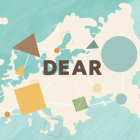Navigating GCE in a Changing Landscape
News details
The DEAR Multi-Stakeholder Group (MSG), a diverse array of Global Citizenship Education (GCE) and youth engagement practitioners met shortly after the European Parliament elections. Their bi-annual meeting focused on the evolving policy context affecting DEAR/GCE, and discussed strategies for maintaining its prominence on the political agenda.
Policy Context and Global Initiatives
The magnitude of the global crises, the current political context, and the results of the recent European Parliament elections call for innovative approaches to GCE. The Global Gateway initiative for sustainable and infrastructural investments was emphasised by DG INTPA as the key framework in which to tackle the most pressing global challenges.
DG INTPA and MSG members noted several international DEAR relevant events and fora, such as the UN Summit for the Future, and others in October and November 2024:
- G7 Ministerial meeting on Development, including Education (Italian Presidency), 22-24 October.
- UNESCO's Global Education Meeting, in Fortaleza Brazil on 7 November
- EU DEAR Presidency project’s “Shaping Tomorrow through Global Education,” in Budapest Hungary on 28 November.
European Trends in DEAR/GCE policy-making
The Global Education Network Europe (GENE) focused on recent progress and challenges GENEin the GCE policy environment, e.g:
- GCE's increasing prominence in education policies
- GCE's role in developing new narratives for development cooperation
- Challenges in sustaining GCE initiatives amid changing political landscapes
- The need for a whole-organisation approach to strengthen DEAR/GCE voices in policy.
MSG Member Contributions
Participants shared insights on the current context of DEAR/GCE policy in Europe:
- The need for GCE to adapt to political polarisation on issues such as migration and gender equality
- Positive policy contexts in some EU Member States, allowing for constructive dialogue
- Importance of engaging with generational shifts, including different perspectives and ‘cultures’
- Need to better highlight links between GCE and development cooperation
- Value of international conferences and events for strategy development
- Key role of advocacy work and policy dialogue.
Some MSG members raised concerns about reduced GCE funding in some EU Member States, shrinking civil society space, and the fact that GCE competes for attention in a crowded policy landscape.
Youth Engagement in DEAR/GCE
The meeting also focused on strategies to enhance youth participation in DEAR projects.DG INTPA highlighted improvements in youth engagement opportunities introduced with the last DEAR Call for Proposals (2022).
Areta Sobieraj from Oxfam Italy and Alvaro Gonzales Perez from the European Youth Forum presented results from a survey on youth engagement in DEAR projects. Key findings included the:
- Importance of long-term youth engagement
- Need to focus on meaningful engagement more than on outreach numbers
- Importance of youth leadership and recognition
- Need to address administrative barriers to youth participation
- Value of capacity-building sessions and peer-to-peer activities.
The MSG members discussed several means to increase youth interest and involvement in DEAR/GCE:
- Tailoring approaches to different age groups
- Focusing on local, place-based initiatives
- Improving sensitivity to youth-related terminology
- Addressing the gender dimension of youth engagement
- Evaluating the qualitative impact of youth engagement
- Involving youth in all policy development, not just youth policies
- Including young people from outside Europe
- Acknowledging the distinction between youth organisations and youth-led organisations.
Conclusion
The DEAR MSG meeting underscored the dynamic nature of DEAR/GCE in Europe and the ongoing need for adaptation and innovation in the face of changing political and social landscapes. The focus on youth engagement highlighted the importance of nurturing the next generation of conscious and active citizens.


Log in with your EU Login account to post or comment on the platform.